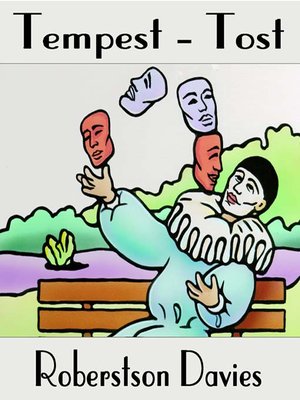Given taste, you can go as far as you like with your big stage effects. Hundreds of people milling around if you like. Fill the stage with horses and dogs. Pageantry in a big way. Make it complex! Let it fill the eye! Let it be enriched, bejeweled, Byzantine! The parrot-cry that simplicity is one with good taste comes from people who cannot trust their own taste in anything that is not simple! Shakespeare demands all the opulence we can give him!
Well.
Robertson Davies is an author of unusual warmth and humanity. Though his style isn't really "cool", lacking any sort of postmodern trickery, dramatic formalism, or dense modenist allusion, his novels are peopled with characters who talk, act, and hurt like real people. Not exactly like real people, of course, but, much like the characters in a good play make you think "these people sound just like us!" even though your conversations aren't nearly as erudite and funny, the citizens of Davies' Salterton feel real.
The Salterton community theater is staging Shakespeare's The Tempest. The community theater isn't a setting that encourages very serious examination, on the whole, and here again Davies shows his deft touch, taking on archetypes from the professional out of town director, the zany conductor, the overserious local thespian, the airheaded "hot chick" and so on and sketching them out to, well, not always three dimensions, but at least more than one. Valentine, the director, is flattered in the end by a compliment from a teenager; the conductor shows great insight into relationships beyond his mantra of "marry a mezzo-soprano"; the local thespian is... well, thinly-drawn but very funny; and the "hot chick", actually nicknamed The Torso for her, uh, torso, gets one of the most empathetic gestures of the entire novel.
And yet, in spite of the greatness of those characters, they aren't the focus. Instead, the central character is middle-aged math teacher Hector Mackilwraith, and the central conflict is his newfound infatuation with the high-school ingenue Griselda Webster. Hector is a star teacher at the local high school, an office that carries prestige only in his small pond.
The potential pitfalls are obvious. Make Hector dashing, or dashingly awkward, and the whole thing falls into an unsettling cliche. But make him too pitiful and the novel loses the delicate lightness and turns creepy--but Davies does neither, instead maintaining Hector's innocent, conflicted banality without arousing our contempt, even when his actions get dramatic and fail spectacularly. This is a mild spoiler but Hector ending the novel without Griselda by his side feels like a bold move, even though it's really the only one available by the end. But even in failure--and a lot of characters in Tempest-Tost fail in one way or another--everyone preserves their dignity and essential humanity. That's no mean feat.


No comments:
Post a Comment